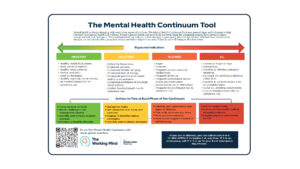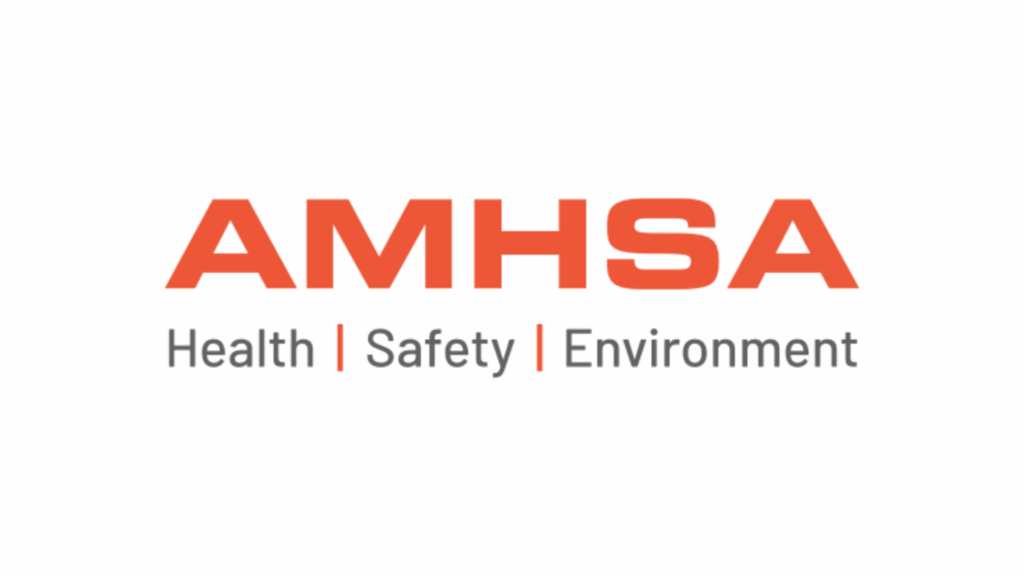At the Alberta Municipal Health and Safety Association (AMHSA), supporting the whole person—mind and body—has become essential to building healthier workplaces across the province. Under the leadership of Chief Administration Officer Craig Hrynchuk, AMHSA is showing what it looks like to move from awareness to real action through mental health training and Psychological Health and Safety (PHS).
Craig approaches this work with optimism and a clear sense of urgency. “We’re at the pinnacle of a time where we are starting to reinvent what safety really means for people,” he says. “Looking back, we see that not all our previous efforts or measurables were effective. We’ve learned. And now we have better, evidence-based strategies.”
That journey began with Opening Minds, a division of the Mental Health Commission of Canada, during the early days of the pandemic—offering virtual mental health training when in-person options weren’t possible. From there, AMHSA evolved its support model to offer in-person sessions, custom workshops with specific groups including Indigenous Peoples, and now is moving toward bringing a dedicated, in-house training model forward to meet growing demand and momentum from their members.
Throughout, Craig has emphasized the importance of listening to their members and making space for individual and group needs. For him, that means actively reaching out to members for feedback on what they need, what’s working, and what can be improved.
“We need to meet our members where they are,” Craig says. “We ask and we listen.”
He offers straightforward advice to other organizations who might feel stuck or unsure where to start with their own mental health strategies:
- Do something.
“It’s easy to get paralyzed by overthinking—but doing something, anything, is a step forward.” - Focus on bottom-up, not top-down.
“Understanding the unique needs of your team is the foundation for any progress.” - Build cultural readiness.
“Don’t wait for it—you create the culture through intentional actions.” - Make space for leaders to be vulnerable.
“That openness is what truly breaks stigma and paves the way for lasting change.”
An Entrepreneurial Approach That’s Changing the Face of Safety
What makes AMHSA’s story even more compelling is its entrepreneurial approach to advancing mental health. Recognizing an urgent need, particularly among First Responder communities, AMHSA didn’t wait for a perfect plan. They acted.
They worked to normalize mental health as a core part of essential safety training, ensuring that access to programs like The Working Mind would be as seamless and integrated as any other workplace training. This forward-thinking approach included pursuing and securing grant funding from the Government of Alberta (GoA), which allowed AMHSA to deliver training at scale. It also required collaboration between AMHSA, GoA, and the First Responder community to make it happen.
This spirit of entrepreneurship demonstrates what’s possible when leadership is both bold and responsive. It shows how barriers to mental health support can be lowered—and how real execution can be achieved through a collaborative, solution-focused mindset.
In the next chapter of their story, AMHSA has secured additional grant funding from the Government of Alberta to train 48 new facilitators in The Working Mind: First Responders—a mix of in-house and independent facilitators—to ensure lasting reach and program availability across Alberta.
“Working with Craig and AMHSA, as a Training and Delivery Specialist, it’s been inspiring to see how Craig has moved mental health forward,” says Lauren Cleveland from Opening Minds.
“He is changing the face of safety. He approaches this task with passion. The lives impacted directly through training, the homes the trainees go back to at night, and all the collective people supported by them are staggering. It’s all been driven by a leadership style grounded in humility.”
The Impact Is Personal
AMHSA is seeing the results, hearing the impact, and feeling the momentum. When asked what impact looks like, Craig doesn’t speak only in metrics. He speaks in moments.
“One person said, ‘I didn’t know how much of a challenge I was in until I took this training.’ Another told us, ‘Now I feel like I can speak the same language as the people around me.’”
Those reflections, he says, are what take your breath away—and confirm that this work matters deeply.
He’s also quick to acknowledge that AMHSA’s progress is not theirs alone. Craig expresses gratitude for the Government of Alberta’s progressive and continued support, which has helped create the conditions for innovation and meaningful impact. Especially through their Supporting Psychological Health in First Responders (SPHIFR) grant that has funded many prokects.
Craig finishes with appreciation of the team around him:
“We have a great leadership team, a great board, incredible employees, and amazing support from our members. It’s a privilege to be part of this work—to help create a culture where mental health is not only valued but actively supported.”
In leading boldly, AMHSA continues to show the way forward proving that real change in workplace mental health is not only possible, but essential.


